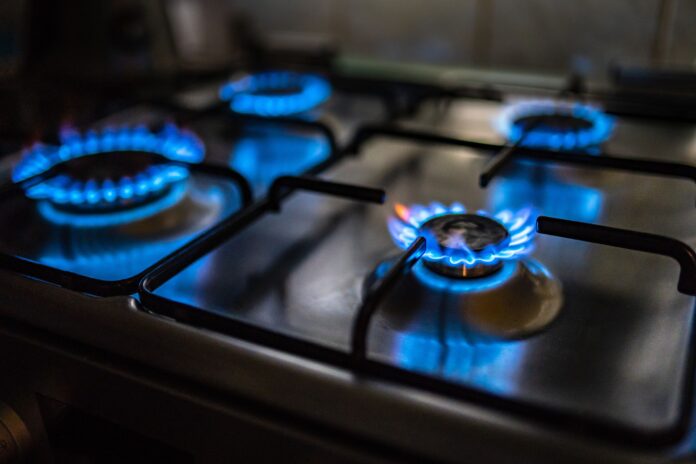Gas stoves can emit cancer causing chemicals in homes – Research
Natural gas stoves and ovens can leak harmful chemicals inside homes even when they’re not in use.
About 47 million U.S. households use such appliances, according to the federal Energy Information Administration.
A study published Thursday in the journal Environmental Science and Technology found at least 12 hazardous air pollutants emitted from gas stoves in California, including benzene – a chemical known to cause cancer in some people with long-term exposure.
READ ALSO: NCPWD earmarks N10 million to fight skin cancer in Albinos
The researchers behind the study — a group from the nonprofit energy research institute, PSE Healthy Energy — took gas samples from 159 residential stoves in 16 counties throughout California. They found benzene in 99% of the samples.
They also calculated a household’s benzene exposure based on the size of the kitchen, the room’s ventilation level, how much of the chemical was present and whether the stoves were leaking when they were turned off. The results showed that the leakiest stoves exposed people to indoor concentrations of benzene that were up to seven times the safe exposure level set by the California Environmental Protection Agency.
Over time, such exposure might increase a person’s risk of blood disorders or reproductive issues, although scientists are still learning about how benzene affects health.
The chemical has more conclusively been linked to leukaemia, multiple myeloma and non-Hodgkin lymphoma. The World Health Organisation (WHO) has said there’s no safe level of benzene exposure when it comes to cancer risk.
But benzene isn’t the only worrisome chemical that comes from stoves, nor are the emissions limited to California. Decades of research have suggested that gas stoves are a source of indoor air pollution.
“Anywhere natural gas is leaked, hazardous air pollutants are likely being released, as well,” a co-author of the new study, Kelsey Bilsback, a senior scientist at PSE Healthy Energy, said on a media call.
Previous research has shown that gas stoves in California homes emit nitrogen oxides, which can irritate the eyes, the nose, the throat or the lungs and can cause some people to feel tired, dizzy or short of breath.
Another co-author of the study, Drew Michanowicz, previously identified 21 hazardous air pollutants from gas stoves and outdoor gas lines at Boston homes. Several of the pollutants were volatile organic compounds: a large group of chemicals, including benzene, that may increase the risk of certain cancers, birth defects or cognitive impairment among people with long-term exposure.
But Michanowicz said some of the lowest concentrations of pollutants in California were still about 10 times higher than the averages from his Boston study. The researchers aren’t sure why concentrations vary from one location to the next.
“We think it has something to do with where the gas is being sourced from,” said Eric Lebel, another study co-author. “California has two major pipelines where it imports gas from one coming from the Rockies and then one coming in from the north from Canada.”
Bilsback said benzene can enter a gas supply at different points in the system because of how it is stored or transported. From there, it could be released into the kitchen through a leaky stove.
The presence of benzene in California homes was consistent regardless of their gas providers or brands of appliances, Lebel said. But stoves in the North San Fernando and Santa Clarita valleys had the highest levels, followed by those in greater Los Angeles.
“Benzene emissions from a gas stove, even while it’s off, can produce in some cases concentrations of benzene in your house that are equivalent to living with a smoker,” Lebel said.
Andrea De Vizcaya Ruiz, an associate professor of environmental and occupational health at the University of California, Irvine, who wasn’t involved in the study, said that people can get exposed to small amounts of benzene when they fill up their car’s gas tanks or sit by a fireplace but that exposure to high amounts over long periods of time is worrisome.
“It’s one of the most direct chemicals that induce cancer because it transforms the cells in the bone marrow,” she said.
Pregnant women, infants and young children may be particularly susceptible to adverse health outcomes from long-term benzene exposure, De Vizcaya Ruiz said.
But Lebel said it can be hard to tell whether your home has a leak. Gas companies add compounds to gas that give off a rotten egg smell so major leaks don’t go undetected, but the scent usually isn’t noticeable unless gas is leaking at high concentrations. In that case, De Vizcaya Ruiz said, people may also start to vomit, feel drowsy or confused or develop headaches.
“If you ever smell gas, you should immediately leave your house, call the gas company,” Lebel said.
De Vizcaya Ruiz said opening windows can better ventilate rooms in the short term, which helps mitigate potential exposure, but it won’t eliminate the risk or the root cause. People in California may want to consider calling their gas companies as a precaution to make sure there’s no leak, she added.
One of the simplest fixes, Lebel said, is to replace a gas stove with an electric one.
“Just having a gas appliance in your house can be a potential health risk. Eliminating gas altogether is the only sure way to completely eliminate that risk,” he said.
Follow the Neptune Prime channel on WhatsApp: https://whatsapp.com/channel/0029Va74ZvU2v1IqKByXoX3d
Do you have breaking news, interview request, opinion, suggestion, or want your event covered? Email us at neptuneprime2233@gmail.com


